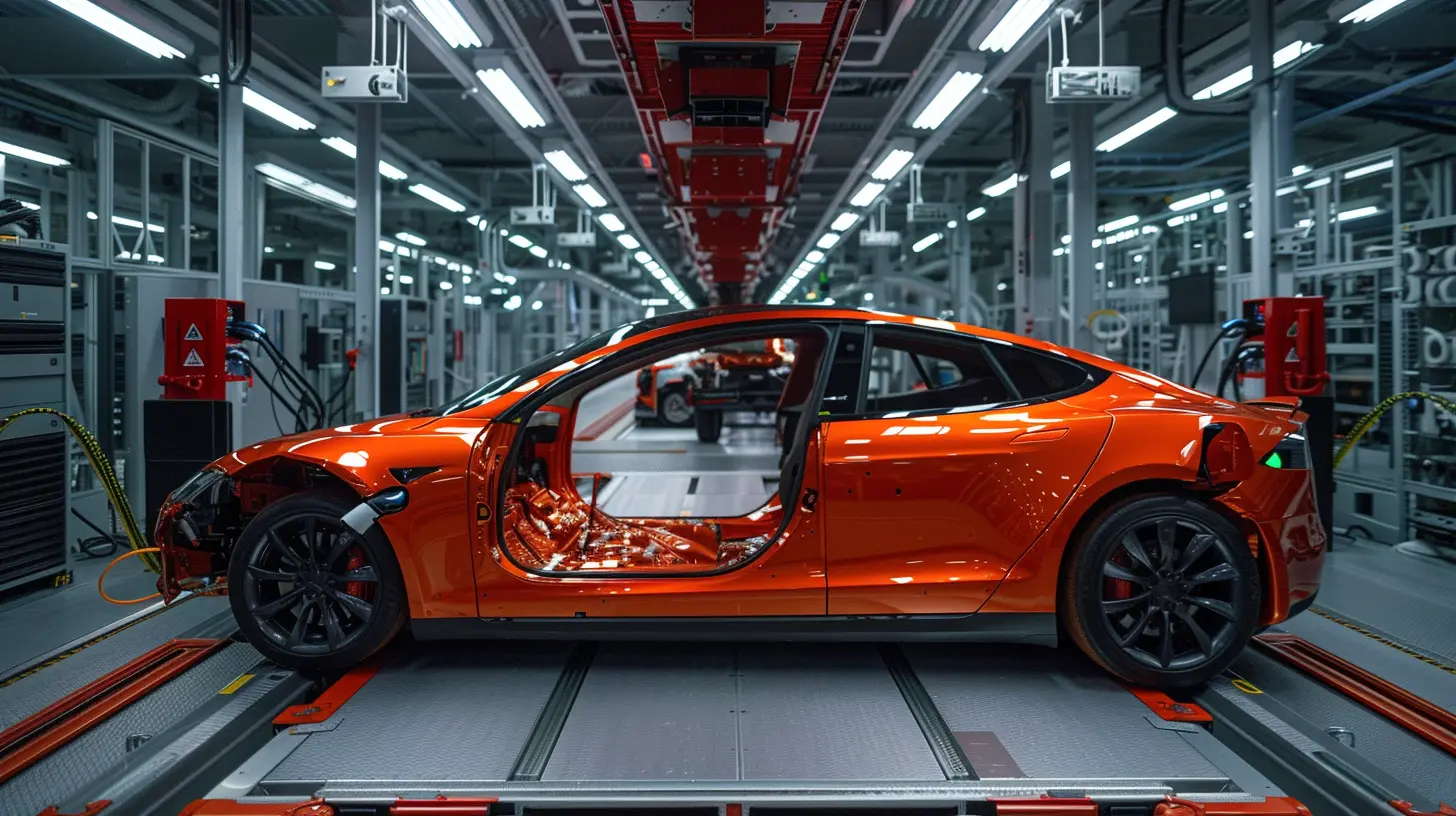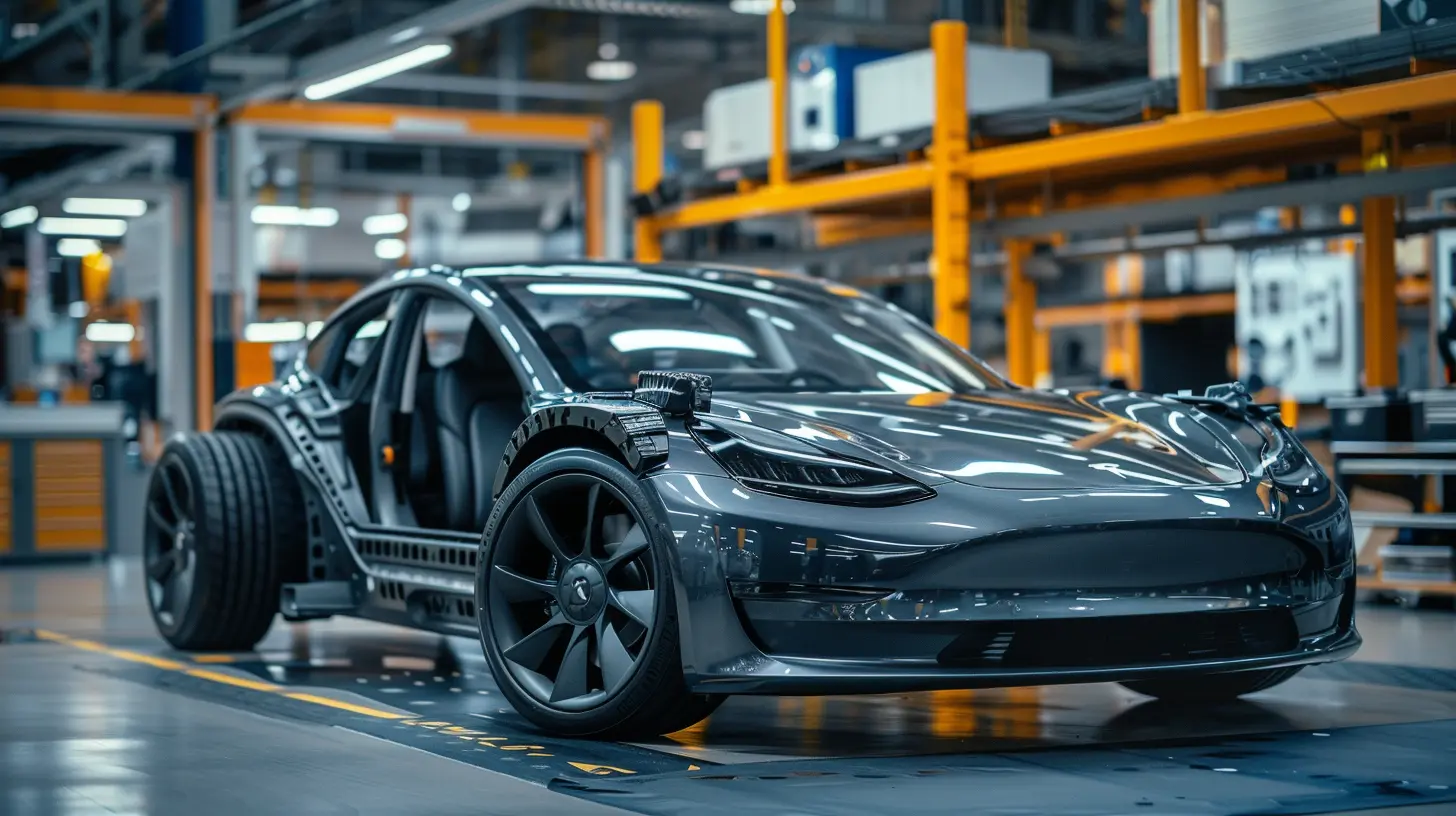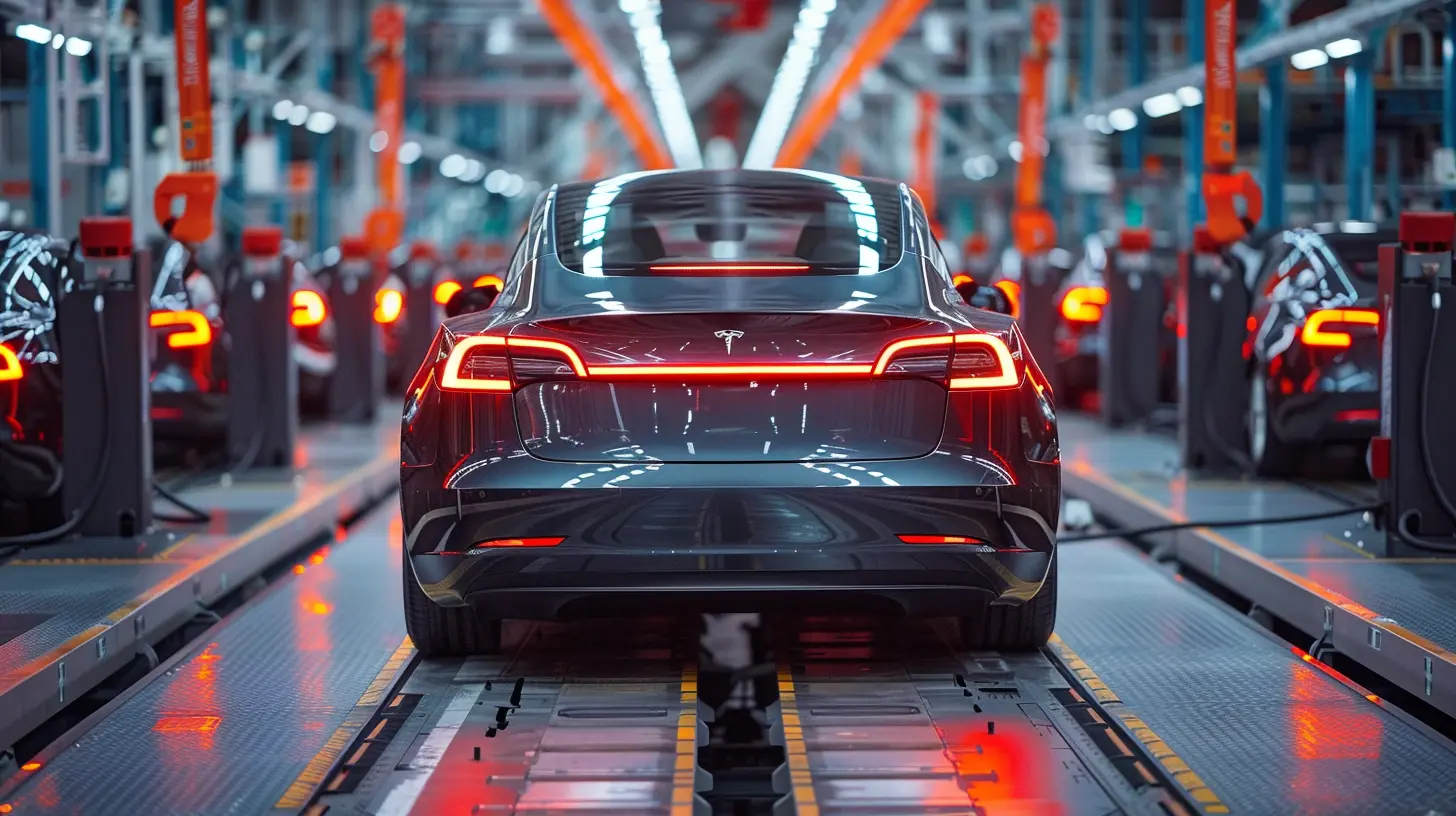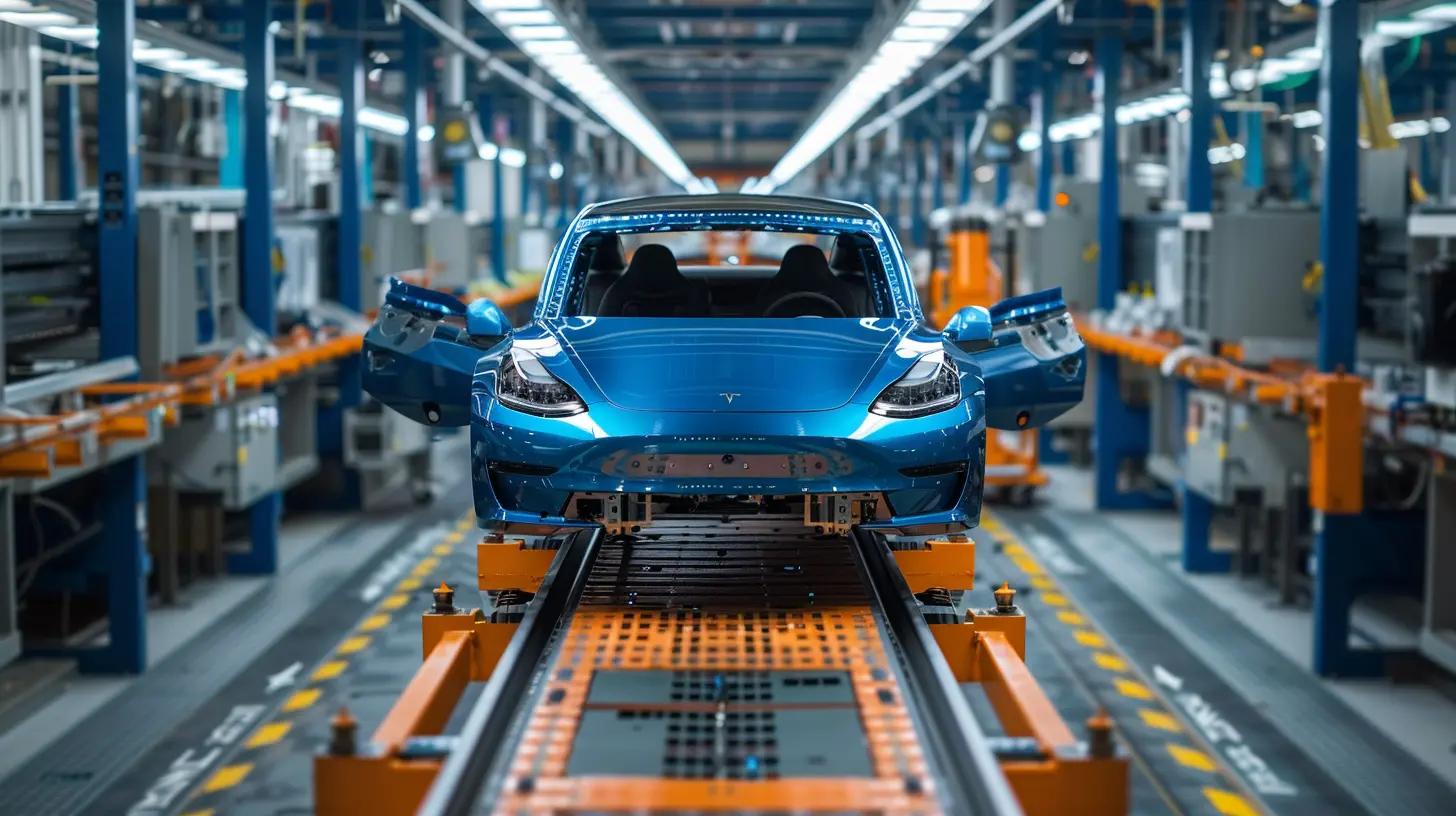How Electric Vehicles Are Reshaping the Auto Repair Industry
17 July 2025
The rise of electric vehicles (EVs) has not only transformed the way we drive, but it's also shaking up an entire industry that has been around for over a century—the auto repair industry. If you’ve ever wondered what happens when an auto repair shop, which has traditionally been focused on gas-powered vehicles, faces an influx of EVs, you're not alone. The shift from internal combustion engines to electric motors is not just about swapping out parts; it’s an overhaul of the old system.
Now, I know what you're thinking—how does this affect the local mechanic shop or the way we maintain our cars? Let's dive in and explore how electric vehicles are fundamentally reshaping the auto repair industry and what this means for both mechanics and car owners alike.

The Simplicity of Electric Vehicles
One of the biggest game-changers in the EV world is their simplicity compared to traditional gas-powered vehicles. EVs have fewer moving parts, and fewer parts mean fewer things can go wrong. A typical internal combustion engine has hundreds of parts that need to be maintained, from spark plugs to oil filters. However, with electric vehicles, the engine is replaced by an electric motor and battery, drastically simplifying the vehicle's mechanics.In fact, electric vehicles have around 20 moving parts compared to the 2,000+ moving parts in a traditional car. This means fewer breakdowns and less need for routine maintenance. You don't have to worry about oil changes, replacing spark plugs, or even watching out for a faulty transmission. In many ways, owning an EV simplifies the whole car maintenance process.
Fewer Routine Repairs
Let’s face it, if you’ve owned a gas-powered car, you’re probably used to regular trips to the mechanic for oil changes, transmission fluid replacements, or a new muffler. Well, EVs don’t need any of those things. They don’t require oil changes because there’s no engine oil to replace. The absence of a traditional transmission also means no transmission fluid, and since they don’t burn fuel, there’s no exhaust system to maintain.This has left many auto repair shops scrambling to adjust. Think about it—what happens to a business model that relies heavily on these frequent repairs? It’s like running a coffee shop and suddenly people stop drinking coffee. The fundamental structure of an auto repair shop is being challenged, and many are finding that they need to pivot—or risk being left behind.

New Skills, New Tools
While EVs require less routine maintenance, they do still need repairs and upkeep, but it’s a whole new ball game. Mechanics who’ve spent years honing their skills on internal combustion engines now have to learn an entirely new set of skills to deal with electric motors, battery systems, and advanced computer diagnostics.Specialized Training
Repairing electric vehicles isn’t as simple as popping open the hood and poking around with a wrench. EV repairs often involve sophisticated electronics, high-voltage systems, and complex software. It's not just about mechanical know-how anymore; it’s about understanding electrical engineering and computer systems.Mechanics need specialized training to work on EVs. They need to understand the intricacies of electric drivetrains, high-voltage battery packs, and regenerative braking systems. Not only does this require new certifications, but it also means that auto repair shops need to invest in new tools and equipment designed specifically for electric vehicles.
For example, working with EV batteries requires special insulation gloves and high-voltage tools. Mechanics also need to undergo safety training to ensure they don’t get electrocuted while working on high-voltage systems. It’s a whole new world, and not every mechanic is ready for the challenge.
Diagnostic Complexity
There’s another layer to this transformation—diagnostics. Electric vehicles are often more like computers on wheels than traditional cars. They’re packed with sensors, software, and complex electronics that monitor everything from battery health to motor efficiency.Mechanics now need to be proficient in using diagnostic software to interpret error codes and troubleshoot issues. This requires a whole new skill set, often resembling IT work more than traditional mechanical repairs. Gone are the days of simply listening to the engine to figure out what’s wrong. Now, mechanics are plugging in laptops and deciphering complex data streams.

The Role of Dealerships in EV Repairs
So, if local mechanics are struggling to keep up with the changes, where are people taking their electric vehicles for repairs? More often than not, it’s the dealerships. Many automakers, such as Tesla, prefer to handle repairs in-house, making it difficult for independent shops to get the tools and parts they need to fix EVs.Authorized Service Centers
Some EV manufacturers, like Tesla, only allow authorized service centers to work on their vehicles. This has led to a situation where many EV owners are forced to go back to the dealership for even basic repairs. While this may ensure a higher quality of service, it also limits competition and can result in higher repair costs.Furthermore, dealerships often have more advanced diagnostic tools and better access to proprietary parts. This gives them a leg up over independent shops. However, this also means that car owners might have fewer options when it comes to choosing where to get their vehicle serviced, leading to longer wait times and potentially higher costs.
Warranty Concerns
Another factor driving EV owners back to dealerships is the issue of warranties. Many electric vehicles come with extensive warranties on their batteries and electric drivetrains, but those warranties often require you to have repairs done at an authorized service center. If you take your EV to an independent mechanic who isn’t certified, you could void your warranty—something that no car owner wants to deal with.
The Rise of Mobile Repair Services
Here’s an interesting twist—while traditional auto repair shops may be struggling to adapt to EVs, a new type of service is rising: mobile repair services. Many EV owners are opting for on-demand repair services that come directly to their home or workplace. This is especially convenient for EVs, which often require less frequent but more specialized maintenance.Companies like Rivian and Tesla have introduced mobile repair units that can come to you for basic repairs, diagnostics, or even tire changes. This is shaking up the traditional repair model and offering car owners more convenient options. Imagine never having to take your car into the shop again—this is becoming a reality for many EV owners.
The Impact on Auto Part Suppliers
It’s not just mechanics and car owners feeling the effects of the EV revolution—auto part suppliers are also being impacted. Many of the parts that used to be in high demand for traditional vehicles—oil filters, spark plugs, exhaust systems—are no longer needed for electric vehicles.Shift to New Components
Instead, the focus is shifting towards producing specialized EV parts, such as high-voltage cables, electric motors, and battery packs. While some suppliers are adapting to this new demand, others are facing declining sales. It’s a ripple effect that’s being felt across the entire automotive supply chain.
The Future of Auto Repair Shops
So, what does the future hold for traditional auto repair shops? Will they fade into obscurity as electric vehicles become more popular, or will they adapt to the new landscape?Adapting to the EV Market
The shops that will thrive in the future are those that are willing to adapt. Many are already investing in new tools, training their mechanics on EV technology, and even partnering with EV manufacturers to become certified repair centers.It’s likely that in the future, we’ll see a split between shops that specialize in traditional vehicles and those that focus on electric vehicles. As the market for EVs grows, the demand for specialized repair shops will also increase. Those shops that can stay on top of technological advancements will be well-positioned to thrive.
A Blend of Old and New
However, it's important to remember that gas-powered vehicles aren't going away overnight. There will still be a need for mechanics who can work on internal combustion engines for years to come. The key will be flexibility—shops that can manage both types of vehicles will be the most successful.Conclusion: A New Era for Auto Repair
Electric vehicles are undeniably reshaping the auto repair industry. From fewer routine repairs to the need for specialized training and tools, the entire landscape is shifting. While this presents challenges for traditional auto repair shops, it also opens up new opportunities for those willing to adapt. Whether it’s embracing new technology, offering mobile repair services, or partnering with EV manufacturers, the future of auto repair is set to be very different from what we’ve known in the past.And let’s be honest—change can be a little scary. But it can also be exciting. The road ahead may be uncertain, but one thing is clear: the auto repair industry is on the brink of a revolution.
all images in this post were generated using AI tools
Category:
Electric VehiclesAuthor:

Vincent Hubbard
Discussion
rate this article
1 comments
Hawk Mathews
This article highlights an intriguing shift in the auto repair landscape! I'm curious to see how mechanic training programs will adapt to the rise of electric vehicles and the new technologies involved. It’s fascinating to think about the future of auto maintenance and sustainability in the automotive industry!
August 4, 2025 at 4:48 AM

Vincent Hubbard
Thank you! Indeed, the transition to electric vehicles will necessitate significant changes in mechanic training programs, focusing on new technologies and sustainable practices. It's an exciting time for the industry!


